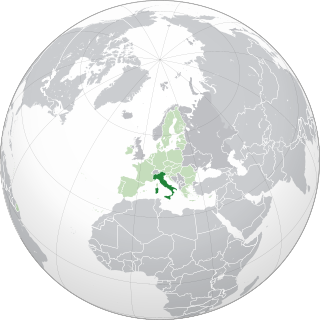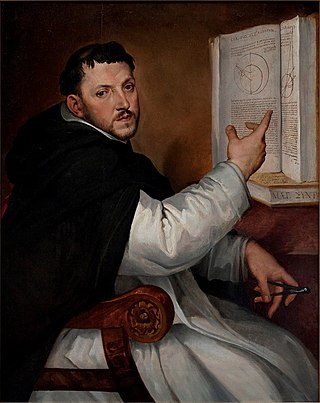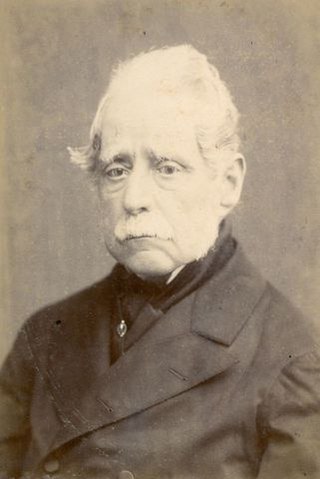Related Research Articles

Alatri is an Italian town and comune of the province of Frosinone in the region of Lazio, with c. 30,000 inhabitants. An ancient city of the Hernici, it is known for its megalithic acropolis.

The history of the Jews in Italy spans more than two thousand years to the present. The Jewish presence in Italy dates to the pre-Christian Roman period and has continued, despite periods of extreme persecution and expulsions, until the present. As of 2019, the estimated core Jewish population in Italy numbers around 45,000.

IgnazioDanti, O.P., born Pellegrino Rainaldi Danti, was an Italian Roman Catholic prelate, mathematician, astronomer, and cosmographer, who served as Bishop of Alatri (1583–1586).

The Rome–Fiuggi railway is a former railway built on the east part of Rome, Italy. It consisted of a 78.1 kilometers (48.5 mi) long narrow gauge 950 mm line from Rome to Fiuggi.

Cristoforo Numai was an Italian Franciscan, who became minister general of the Friars Minor and a cardinal.
Pandulf of Pisa was a twelfth-century Italian cardinal, and biographer of several contemporary popes. He was a native of Rome. He was a nephew of Cardinal Hugo of Alatri. Under Pope Paschal II, and probably with the patronage of his uncle, Pandulf held the post of ostiarius at the papal court. It is deduced from his detailed description of the election of Pope Gelasius II on 24 January 1118 that he was present. On his coronation day, 10 March 1118, Pope Gelasius II elevated him to the rank of Lector and Exorcist. Pope Calixtus II ordained him a subdeacon.

Luciano De Crescenzo was an Italian writer, film actor, director and engineer.
The former Italian Catholic diocese of Alatri existed until 1986, when it was united into the diocese of Anagni-Alatri. Comprising historically seven towns close to Rome, it was under the immediate jurisdiction of the Holy See.
Giacomo Alatri was an Italian banker and philanthropist, the son of Samuel Alatri. He was for several years president of the Banca Romana, which position he resigned when, in 1881, his propositions for the reorganization of the bank were rejected. The subsequent history of that institution, its ultimate bankruptcy in 1893, and the grave political disturbances occasioned by it throughout Italy known as the Banca Romana scandal, fully justified the courageous stand taken by Alatri. His chief philanthropic efforts were directed toward organizing kindergartens for the Jewish poor, to the success of which he devoted all his energies. Alatri died at the age of fifty-six, two months before his father. His work on bank reform, entitled Sul Riordinamento delle Banche d'Emissione in Italia, was published in Rome in 1888.

Samuel Alatri was an Italian politician, communal worker, and orator. For more than sixty years he led the Jewish community of his native city, and bore the brunt of its contests for religious and political freedom.

The Roma–Giardinetti railway is a narrow gauge on-street railway which connects Laziali with Giardinetti to the east just past the Grande Raccordo Anulare, Rome's orbital motorway. It is run by ATAC, the company responsible for public transportation in the city, which also operates the Rome Metro.
Eduardo De Crescenzo is an Italian singer-songwriter and multi-instrumentalist, best known for the songs "Ancora" and "E la musica va".

Paolo Alatri was an Italian historian and Marxist politician.

Alessandro D'Alatri was an Italian film director, screenwriter and actor. He started a career as an actor, and later he enrolled at as a successful career as a film and television director.
Goffredo da Alatri, also called Goffredo di Alatri or Goffredo di Raynaldo, was an Italian nobleman, city leader and Roman Catholic cardinal. He was podestà of his native Alatri, a small town in the mountains, east of Anagni, in the last two years of his life.
Stefano Ghirardelli was a Roman Catholic prelate who served as Bishop of Alatri (1683–1708).
Pietro Paolo Gerardi (1633–1708) was a Roman Catholic prelate who served as Bishop of Anagni (1696–1708).
Alessandro Vittrici was a Roman art collector and Catholic prelate who served as Bishop of Alatri (1632–1648) and as governor of Rome from 1647.
Michelangelo Brancavalerio was a Roman Catholic prelate who served as Bishop of Alatri (1648–1683).
Bernardino Visconti or Bernardino Conti was a Roman Catholic prelate who served as Bishop of Alatri (1537–1540).
References
![]() This article incorporates text from a publication now in the public domain : Singer, Isidore; et al., eds. (1901–1906). "Alatri, Crescenzo". The Jewish Encyclopedia . New York: Funk & Wagnalls.
This article incorporates text from a publication now in the public domain : Singer, Isidore; et al., eds. (1901–1906). "Alatri, Crescenzo". The Jewish Encyclopedia . New York: Funk & Wagnalls.